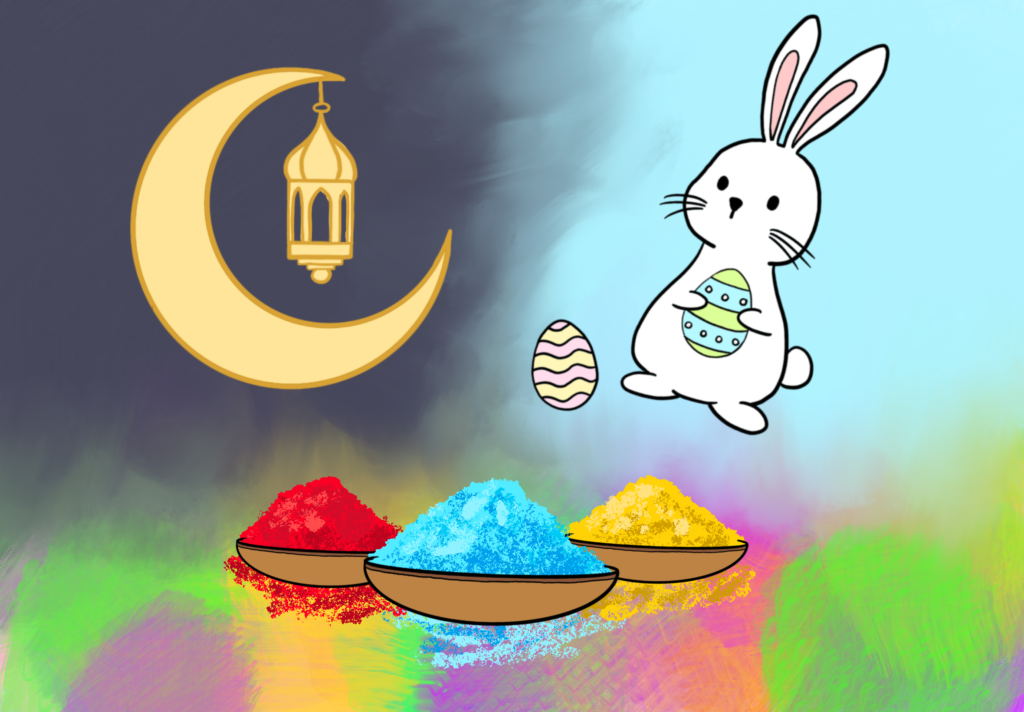For the majority of the community, the second school day of the new year was filled with much more excitement than many anticipated. Dr. Matt Bellace, a professional speaker, psychologist, and comedian was invited to campus to offer his inspiring wisdom on drug and alcohol prevention.
From Princeton, New Jersey, Dr. Bellace has an impressive resumé. He has been traveling the country since 1995 conducting presentations. In 2005, he earned a Ph.D. in clinical neuropsychology. He is the author of A Better High, and he contributes to National Geographic’s This or That. In addition, Dr. Bellace has appeared as a comedian on the TV show World’s Dumbest. Invited to nearly 200 institutions each year, Dr. Bellace has inspired thousands of students.
Mr. James Stanley, the Dean of Students, invited Dr. Bellace to campus. With the opportunity to select a speaker for a special program this year, Mr. Stanley wanted to choose a topic that differed from those in the past, adding that there have been few recent programs on substance abuse. Mr. Stanley commented, “I was looking for something that would engage students, have valuable content, and go into a different area.”
As soon as school meeting started this Tuesday, excitement and energy filled the theater as Dr. Bellace called on volunteers to begin the program. After conducting his popular “chair activity,” Dr. Bellace elaborated on one of his messages of the presentation: to surround oneself with positive support, asserting, “The number one predictor of your behavior is the friends you surround yourself with.”
It was soon evident that Dr. Bellace’s presentation was not going to be similar to a normal talk on drug and alcohol prevention. Dr. Bellace elaborated on why this was true. Using scare tactics — a commonly practiced method of prevention — to dissuade teenagers from drug and alcohol abuse is actually remarkably ineffective, according to Dr. Bellace. When teenagers are presented with the dangers of drugs and alcohol, they are likely to attempt to prove those statements false. Instead, Dr. Bellace approaches his presentations with energy and comedy.
A core element of the program was that teenagers are highly susceptible to stress and often struggle to deal with their emotions. However, when individuals suffer losses or defeat, there are several alternatives to cope rather than turning to destructive actions. Dr. Bellace shared more personal experiences regarding this idea. Growing up, Dr. Bellace’s brother was known for his terrible behavior and substance abuse — somebody who dealt with his emotions with drugs and alcohol. In contrast to his brother, Dr. Bellace dealt with his hardships by more productive means, such as sports, elaborating, “I took all those emotions and turned to sports.” Transitioning into another core message of the program, Dr. Bellace strongly asserted that “bad things happen,” but it is our job to “take the energy for something good.”
Dr. Bellace then discussed the benefits of natural highs — feeling satisfied after doing something positive — and how they are fitting alternatives to artificial highs to cope with feeling pain. Dr. Bellace said, “You have a choice. What are you going to do with your pain? You can harness it and do something good!” When individuals do so, according to Dr. Bellace, “There isn’t a drug on the planet that couldn’t replicate the richness and complexity of that moment.”
Mr. Stanley was pleased with what he saw as the success of Dr. Bellace’s presentation. “My impression in the theater was that the vast majority of students were enjoying it,” he said. “There are ways to look at the audience and quickly tell if people are not engaged. Those signs weren’t present.” Mr. Stanley also noticed that Dr. Bellace connected well with students after the program, and that faculty members enjoyed his message.
Mr. Stanley believes Dr. Bellace effectively communicated that there are indeed risks, and rather than using scare tactics, Dr. Bellace approached this message through personal experience. “Messaging on the national level suggests there are no risks associated with marijuana use, and Dr. Bellace pointed out that use can cause memory and anxiety problems,” Mr. Stanley said.
Many students responded to the presentation positively. Parth Mody ’19 expressed, “I thought the presentation was really funny and at the same time delivered a good message. Of all the speakers I’ve heard at Choate, I’m sure he will be one of the most memorable ones.”
Samuel Kaplan ’19 also approved of Dr. Bellace. “I thought the speaker truly believed what he was speaking about, and I could feel that,” he said. “I think it’s hard to get the attention of Choate students, but he took the challenge and he did a better job than past speakers and probably grabbed more students attention and inspired some.”
Other students were less happy with the program. Erica Chang ’19, regarding Dr. Bellace’s encouragement to pursue a natural high, commented, “Any type of natural high is better than one caused by toxic substances. However, time consuming activities and academic work often take priority.”
Ben Cillie ’19 said, “I thought the speaker was really funny and approached drugs in a different way, but it was still a bit cheesy and repetitive.”
Hannah Huddleston ’19 said, “I thought the talk was funny and enjoyable with a good message, but it could’ve been more effective. Personally, I was annoyed that Dr. Bellace kept promoting his book and talking about his kids. I think that the message of using naturals highs instead of drugs would be more moving if it came from someone who had battled with drug abuse in the past. The fact that Dr. Bellace’s brother used a lot of drugs then became a partier and dropped out of college probably cemented Bellace’s opposition to using drugs himself. I think it is easy for someone who would never dream of using drugs to say, ‘Just don’t do it.’”



